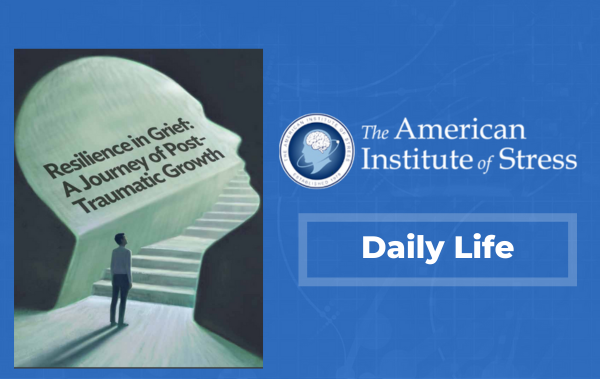Contributed By: AIS Fellow Dr. Heidi Hanna. Dr. Hanna serves on the AIS Daily Life Stress Board and as the Associate Editor for AIS’s Contentment magazine. For more information on how stress impacts the brain and how to train relaxation, check out her book, SHARP: Simple Strategies to Boost Your Brainpower, or visit her Brain Gym at www.synergyprograms.com/braingym.
 •Do you thrive on tight deadlines?
•Do you thrive on tight deadlines?
•Do you often leave things until the last minute?
•Do you have a difficult time doing nothing at all?
•Does it take you a few days off to feel like you’re on vacation?
•Do you spend much of your vacation time thinking about work?
•Do you constantly worry about what you might be missing?
•Do you feel stressed when you’re disconnected to your cell phone or computer?
•Do you find it difficult to turn your brain off at night to sleep?
•Do you feel as though there is never enough time to get things done?
•Do you ever feel as though your work for the day is not enough?
•Do you lack time to see your friends or participate in hobbies you used to enjoy?
•Do you feel as though you’re constantly running from one thing to the next?
•Do you find yourself finishing, or wanting to finish, other peoples’ statements?
•Do you wish I’d stop asking questions so you can get on with the blog already?
Who cares? We all have stress and it’s not going anywhere, so we might as well accept it. I even had a client tell me once, “I love my stress and I don’t want to manage it.” The truth is we thrive on stress. It makes us feel driven to succeed, boosts energy, and gives meaning to our life. In fact conversations often seem to revolve around competition of who’s more stressed. “How are you?” “Stressed.” “Me too.” And then each party goes on to explain why they’re so stressed, with the worst off winning in our backwards way of thinking.
The problem is not that you can’t manage your stress. Most likely you’re doing a fabulous job getting the things done that need to be done, meeting deadlines, and even attending a social event every once in a while (especially if it’s business related). But what is your experience of your life? Are you taking time to appreciate what you’re working so hard to accomplish or are you just speeding through in order to tackle the next item on your to-do list?
Perhaps more importantly, are you aware of the impact that this stress-filled life has on you long term? Most likely you are not. Or maybe like most addicts you know the consequences of your behavior but you’re so hooked on it that coming down from stress feels uncomfortable and with such a busy schedule it’s just easier to stay amped up than deal with the detox of letting go.
Remember the advertisement “this is your brain on drugs”? It certainly made a lasting impression. Unfortunately, it’s not just drugs that can cause our brain to feel scrambled. Unmanaged stress might be just as dangerous.
Stress (and drugs) have been shown to have the following side effects: increased heart rate and blood pressure, increase in blood sugar, breakdown of muscle tissue, decreased digestive functioning, ulcers, blood clotting, migraines, skin problems, premature aging, loss of brain cells, social isolation and loneliness, anxiety, panic attacks, depression, substance abuse, relationship problems, lack of focus, multitasking and disengagement. In fact a 20 year study by the University of London completed in the early 1990s found that unmanaged reactions to stress were a more dangerous risk factor for cancer and heart disease than either cigarette smoking or high-cholesterol foods. And stress may even be as addictive as drugs. In addition to the hormones adrenaline and noradrenaline, stress also releases dopamine, a “feel good” chemical. Dopamine encourages repeat behaviors by activating the reward center in our brain and may be at the heart of many addictive behaviors and substance abuse issues.
Thinking back, are you able to notice any times where you felt you thrived on stress? Have you ever tried to take time off only to find it takes days just to get yourself to decompress? One of the challenges in stress management is fighting our tendency to be pulled back into the rush. It’s important that we recognize the significance of what a stress imbalance does to our system, physically, emotionally, mentally and spiritually. Recovery is not an option. It might be difficult to schedule into our routine, but we can train our brain to become more comfortable with stillness through practice. Techniques that balance out our stress hormones include deep breathing, guided imagery, massage, and meditation.
Contributed By: AIS Fellow Dr. Heidi Hanna. Dr. Hanna serves on the AIS Daily Life Stress Board and as the Associate Editor for AIS’s Contentment magazine. For more information on how stress impacts the brain and how to train relaxation, check out her book, SHARP: Simple Strategies to Boost Your Brainpower, or visit her Brain Gym at www.synergyprograms.com/braingym.





